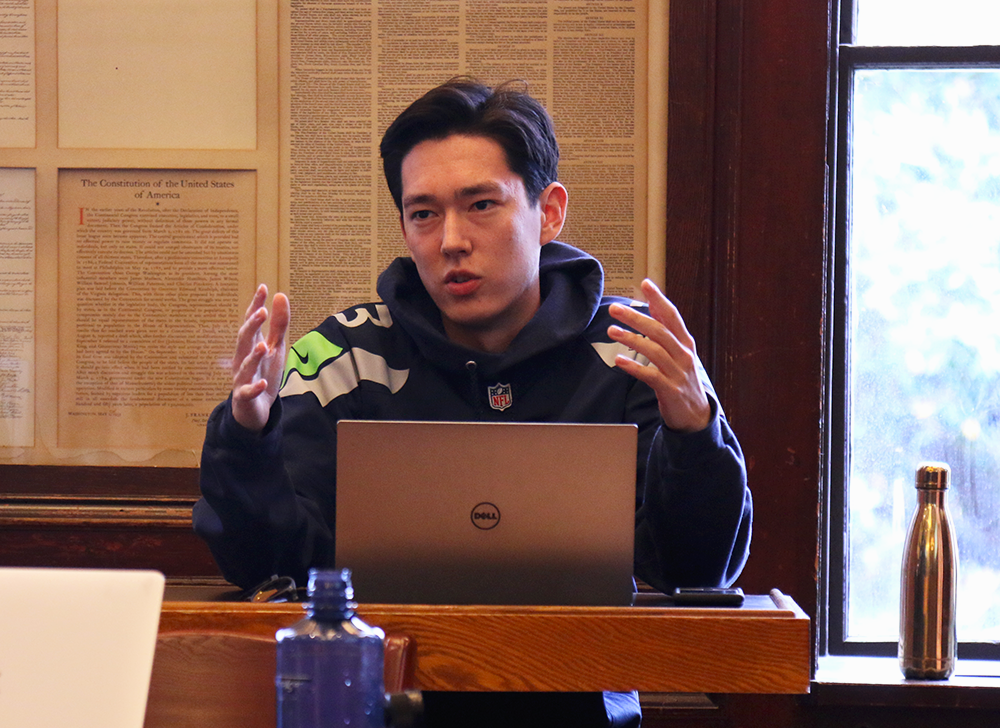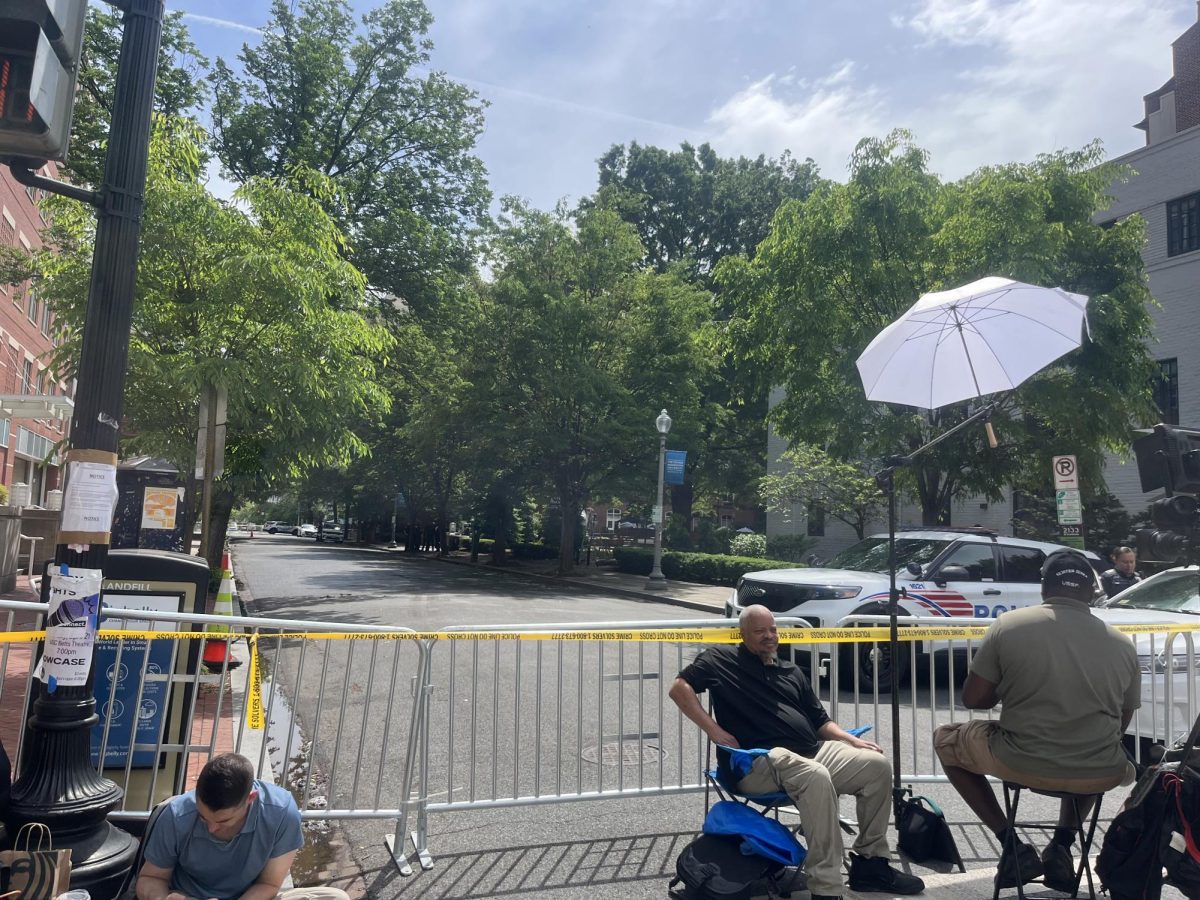The Georgetown University Student Association senate passed new legislation to standardize the organization’s senator absence policy at their most recent meeting Nov. 10.
The bill, introduced by former Ethics and Oversight Committee Chair Zev Burton (SFS ’22) before his resignation, codifies specific consequences for absences accumulated by senators throughout a session. The bill passed unanimously in the senate in a 24-0 vote, but has not yet been signed by the GUSA Executive.

Under the old absence policy, though three absences were grounds for impeachment, the policy was not fully enforced. Under the new system, the Ethics and Oversight Committee, which was created in 2018 to track senators’ attendance records at meetings and monitor potential conflicts of interest within GUSA, may consider impeachment after a senator accrues three unexcused absences. The committee is now mandated to pursue impeachment after a senator’s fourth unexcused absence.
Burton resigned from the GUSA senate a day after introducing the legislation because of personal reasons and disputes within GUSA related to the ethics and oversight committee. The former vice-chair of the ethics and oversight committee, Chris Ziac (SFS ’22), assumed Burton’s responsibilities as the current chair of the committee as of Nov. 12.
The new standardized absence policy will allow operations of the senate to be more productive and benefit GUSA’s mission overall, Ziac said in an interview with The Hoya.
“Hopefully by making this much more standard and clear, people will, again, take it more seriously and put more effort into GUSA to foster a better environment for everybody,” Ziac said. “I think this will, not only in terms of absences, but in terms of personal responsibility, will hopefully get senators thinking more about taking some of the stuff more seriously and being aware of how their actions from committee or from whatever impacts the work of GUSA.”
The 2018-19 GUSA senate saw senator absences quadruple from the previous year’s legislative body. Senators accumulated 43 unexcused absences without proxies during the term.
In terms of absences this semester, the transition chair of the ethics and oversight committee, Senator Leo Teixeira (COL ’21), introduced articles of impeachment against Peter Hamilton (COL ’20) after he accrued a series of unexcused absences throughout the spring and summer terms. The GUSA senate impeached Hamilton in an 11-2 vote Aug. 12. However, the senate later voted 10-6 not to remove Hamilton from the senate Aug. 26.
The new bill aims to clarify areas of the GUSA bylaws around absences and impeachment that were previously vague or unclear, according to Teixeira.
“What is good about this bill I think going forward is it is going to allow for that uniformity that is much needed in various areas,” Teixeira said in an interview with The Hoya. “It will only continue to do what the ethics and oversight committee is supposed to do, which is to bring more accountability to the senate.”
Under the new legislation, a senator earning repeated unexcused absences would be required to attend meetings with various members of the ethics and oversight committee leadership, as well as GUSA senate leadership, depending on the number of absences accrued.
The legislation would also empower the ethics and oversight committee to recommend senators issue a public apology if they accumulate repeated absences. This measure could also, however, lead to disingenuous statements, according to Hamilton.
“I think the punishments are generally appropriate. That being said, one of the suggested consequences includes requiring a senator to make a public apology,” Hamilton wrote in an email to The Hoya. “I find requiring people to apologize to be a little over the top. I would rather an honest apology than a forced one.”
The ethics and oversight committee restructured the committee to include executive representatives and student body voting members at the end of October. This reform came after Teixeira led a working group over the summer to assess problems within the committee and recommend solutions.
The absence bill adheres to the ethics and oversight working group’s recommendations, according to Teixeira.
“Part of what we pushed for is exactly what’s in this bill, so I will commend the bill for that, for heeding the advice of the working group and the conclusions that we came up with and published,” Teixeira said.
Though the senator absence bill and general committee restructure were the two main reform goals of the committee for the semester, Ziac also endorsed the possibility of expanding impeachment bylaw policies in the future.
“The structure and absence thing were definitely the two main things that we wanted to get done as soon as possible in the session,” Ziac said. “I’ve thought about looking into specifically the impeachment process because I think the bylaws are kind of lacking on that too, but that’s probably a bit down the road. Hopefully, it shouldn’t be too important of an issue.”




















